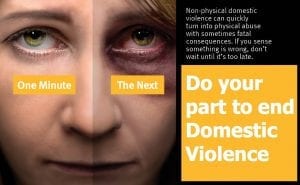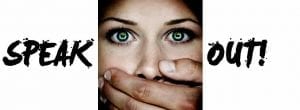![]() ……………………………………………..Main Street Monthly Digest…………………………………………………
……………………………………………..Main Street Monthly Digest…………………………………………………
What is Domestic Violence?
By: Mikayla Tuck Nov 01 2019

Domestic violence also called dating violence, intimate partner violence, spousal abuse etc. It affects men, women, teenage boys and girls. You can be in a married or unmarried relationship. It can consist of many forms, such as emotional, physical, sexual, psychological or economic abuse. All in which are equally NOT okay. It may be in the form of stalking, or cyberstalking, slapping, chocking, pinching, pushing, hitting, shooting, stabbing, saying things that decrease confidence of the wife, husband or other intimate partner victim, intimidating the partner to participate in unsafe sex or sexual practices that the other does not want to participate in. Spiritual abusers either force the victim to participate in the batterer’s religious practices instead of their own or to raise mutual children in a religion that the victim is not in favour of.
…………………………………………………………THIS MONTH’S TOP STORIES…………………………………………………….
Facts about Domestic Violence:
- Intimate partner abuse is a major public health problem, affecting more than 2,000,000 women and 800,000 men and resulting in homelessness, injury, or death of victims.
- Health professionals unfortunately only screen for intimate partner abuse in about 20% of the patients seen. Domestic violence is most effectively assessed when the professional asks questions that call for more than a “yes” or “no” answer and do not directly inquire about domestic abuse, at least earlier during any assessment interview.
- Anxiety is often the effect of domestic violence. it is closely related to fear, and can be described as the response to a future or possible threat.
Warning Signs and What to do if Your Are in a Domestic Abusive Relationship:
If you are in an abusive relationship often times you will feel, demeaned, assaulted or excessively controlled by you partner. It is important to be aware of these warning signs and get help right away. Warning signs to family and friends may include frequent absences from school or work, numerous injuries the victim tries to explain, low self esteem, a change in personality, fear of conflicts, passive-aggressive behaviour, isolation from others, or physical symptoms of stress. If you or your loved one are in a abusive relationship and need help please report to police or call this helpline 1-866-872-0113.
Watch This Video!
